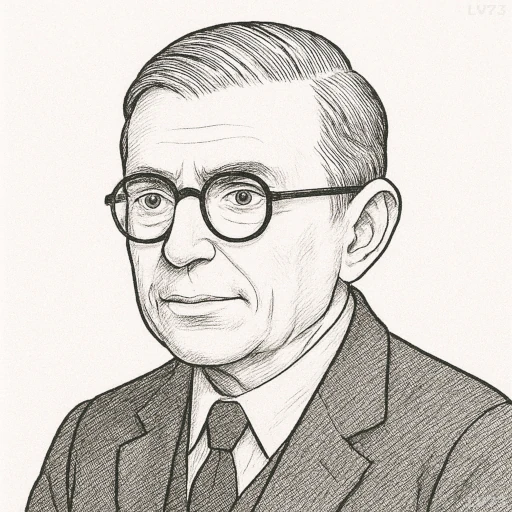“I say a murder is abstract. You pull the trigger and after that you do not understand anything that happens.”

- June 21, 1905 – April 15, 1980
- Born in France
- Philosopher, novelist, playwright
table of contents
Quote
“I say a murder is abstract. You pull the trigger and after that you do not understand anything that happens.”
Explanation
In this quote, Sartre reflects on the profound disconnection between action and consequence, particularly in extreme or violent acts like murder. By describing murder as “abstract,” he suggests that the act itself, while immediately physical, can become emotionally and morally disconnected from its results in the moment. The statement that “after that you do not understand anything that happens” underscores the alienation one may feel once the initial act is completed. This emotional numbness or dissociation speaks to the complexity of human actions—when one commits a violent act, the sheer enormity and irreversibility of it may leave the perpetrator in a state of confusion or moral paralysis, unable to fully grasp the consequences.
Sartre is also pointing to the absurdity of violence from an existential perspective. In existentialism, actions are often seen as acts of self-definition, but in a moment of violence, that self-definition becomes entangled with uncontrollable and devastating results. The killer, in this case, is forced to confront the emptiness of their own existence, as their actions may conflict with any prior moral frameworks they held, creating a disorientation where understanding cannot follow. This existential numbing can be a defense mechanism, an attempt to distance oneself from the grief and guilt that should logically follow.
In modern contexts, this quote can be related to psychological effects of trauma and violence, where the full impact of an action—especially a violent one—is often only understood in its aftermath. The quote is not just about murder but can be extended to extreme acts of harm where the perpetrator may become disconnected from the consequences. In today’s world, where violence is often portrayed in media as abstract or distant from the real human consequences, Sartre’s insight highlights the potential for individuals to be alienated from the true magnitude of their actions, whether in war, crime, or systemic violence. It also speaks to the moral and psychological burden that can follow, which often complicates understanding, self-awareness, and accountability.
Would you like to share your impressions or related stories about this quote in the comments section?

